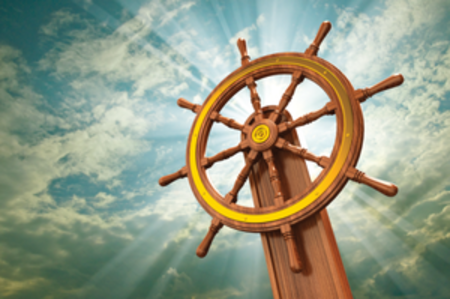In my private practice, one of the tools I most commonly use is something called neurofeedback (brain-based biofeedback).
If you do a search on neurofeedback, you'll probably find a lot of articles on using it to train your brain to do what you want it to do better than it is right now: better attention, better focus, better sleep, better problem-solving, better reading, better moods, better..whatever.
I don't do that.
Don't get me wrong. I do use neurofeedback as a tool that improves people's lives.
What I don't do is to decide on behalf of any one individual brain what "better" means or how it should get there.
Brains are smart. They learn from the information we take in from any number of sources in every waking (and sleeping) moment. They use that information differently, depending on their past histories, what they've learned before, what skills and talents they've practiced, what's being required of them, etc. etc.
So I firmly believe it would be arrogant of me to believe that the itsy-bitsy amount of conscious expertise I've developed about how brains work would be wiser and more efficient than giving a brain with its billions of networked connections the information it can't otherwise have about itself -- a mirror to look at itself, so to speak -- and letting it drive the amount and speed and quality of the changes.
Given information about itself, a brain will evolve. And evolution moves in the direction of more complexity (read: options and responsiveness), more resilience or transformation, as needed (these are not the same, but that's another post...), a better overall fit to the environment it is living in.
Why am I sharing this? Not because I expect you to run out for neurofeedback, but because I believe that our western culture promotes the idea that We Know Best -- that our conscious awareness, our scientific knowledge, and our personal goals should be the driving force of our lives.
Working directly with brains, however, has taught me that sometimes -- dare I say often or even most of the time? -- this just isn't true. We create life-threatening side effects with medications, environmental disaster with our "advances", missed opportunities and even anxiety and depression with our single-minded pursuit of goals and accomplishments and Stuff we think we need.
Yet research shows us that we are pretty poor predictors of what makes us happy (look for "affective forecasting" if you don't beleive me) and that even if we achieve some huge honking goal, the satisfaction with it wears off pretty darn quickly.
What might be different if we trusted life to unfold in satisfying ways just by focusing on the next step or two? If we knew that Natural systems -- like the brain(!) -- are "smart" and will lead to pretty wonderful places if we care for them and make shorter-term choices that respect both them and the feedback we get from our own current states?
“Thinking that you are in charge of your totality of being, with all its complex facilities, is like a stowaway on an ocean steamliner thinking he’s the captain of the ship.”
- Russell Brand, Revolution, quoting “Someone said”
